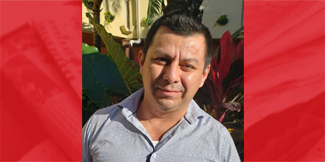It is no secret that the impacts of COVID-19 have been felt especially on our economy, specifically on our tourism industry which is known to directly fund a large chunk of the Belizean economy. From the closing of our borders and airport to limited local tourism, these impacts have been felt for months. It was not until after months of this that it was decided that the Philip Goldson International Airport would be opened for international visitors. The date was initially set for August 15 but because of a surge of the spread of COVID-19 in country, it was postponed to October 1.
Since then, it has now been more than two months and there have been the slow increase of international flights to the country. These flights, however, are not coming into the country closer to what they were pre-COVID-19 and according to Ted Tejada, President of the Belize Hotel Association (BHA), the industry has rebounded to some 20% of its capacity. Still, for December alone, typically a month with the most influx of international tourists, there have been a number of cancellations. These persons who had already booked their stay in the country have mostly canceled on reasons of health and the high number of COVID-19 positive cases in the US. He says that in October 1, there were better projections but those numbers have unfortunately fallen quite significantly. Some 60% of bookings for December have been cancelled or at least modified. Tejada says that one benefit is that hotel rates have doubled since September, translating into more foreign income for the country.
For now, stakeholders within the tourism industry are looking at January to March 2021. Unfortunately, the numbers are grim and what people are looking at specifically is the possibility of a lockdown. With that, the onus might be on the government to make travelling to Belize worthwhile for tourist. As Tejada puts it, no tourist would want to come to the country to suffer restrictions on leisure, travel, nor business. Likewise, the restrictions on the tourists’ homes seem to play a large part, especially in North America and Europe where a returning citizen would be required to quarantine or that their country are lockdown on a whole.
Another problem that the tourism industry is facing is the nearing of the end of a financial moratorium. A three-month moratorium was approved by the Barrow administration and extended for another 6-months on loan payments. This ends in March 2021 and this, according to Tejada, puts a problem in the face of tourism stakeholders who will be forced to pay loans while not generating income.




